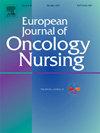了解血液病诊断的年轻成人治疗后自我管理学习需求:一项定性研究
IF 2.7
3区 医学
Q1 NURSING
引用次数: 0
摘要
为了更好地支持和促进在生存中的积极作用,本研究的目的是识别和理解诊断为血液病的年轻成人在治疗后自我管理学习需求方面的观点。方法采用解释-描述性研究。对8名年轻成人(积极治疗结束时年龄在18至29岁)进行了半结构化的个人访谈,他们被诊断患有白血病或淋巴瘤,至少一年没有接受积极治疗。对访谈数据进行迭代内容分析。结果根据参与者的说法,只有当年轻人经历转变或在处理治疗后的挑战时感到孤独时,他们才能确定学习需求。与年轻人、他们的随行人员和照顾者相关的保护性因素和促动性因素(例如,年轻人特征、支持水平、患者教育质量)有助于形成他们对自我管理学习需求的看法。对于年轻人来说,一个潜在的动机指导他们确定要获得的态度(自主、责任、接受)、知识(身体和心理挑战、残疾安置的权利)或技能(自我评估、行动规划、自我宣传)。结论:这项研究支持年轻人需要更多的信息来对他们自我管理治疗后挑战的能力感到自信。因此,学习自我管理是一个由内在动力推动的个人转变过程,也受益于年轻人、他们的随行人员和他们的护理提供者(包括肿瘤护士)之间的合作所带来的外部支持。本文章由计算机程序翻译,如有差异,请以英文原文为准。
Understanding post-treatment self-management learning needs of young adults diagnosed with hematological cancer: a qualitative study
Purpose
To better support and promote an active role in survivorship, the purpose of this study was to identify and understand the perspective of young adults diagnosed with a hematological cancer in regard to their post-treatment self-management learning needs.
Method
An interpretative-descriptive study was conducted. Semi-structured individual interviews were carried out with eight young adults (ages 18 to 29 at the end of active treatment), diagnosed with a leukemia or lymphoma, who have not received active treatment for at least one year. Iterative content analysis of interview data was performed.
Results
According to participants, it is when young adults experience transitions or feel alone in dealing with post-treatment challenges that they can identify a learning need. Protective factors and precipitating factors related to young adults, their entourage and their care providers (e.g., young adult characteristics, level of support, quality of patient education) can contribute to shape their view of self-management learning needs. For young adults, an underlying motivation guides the identification of attitudes (autonomy, responsibility, acceptance), knowledge (physical and psychosocial challenges, rights to accommodation for disability) or skills (self-assessment, action-planning, self-advocacy) to be gained.
Conclusions
This study supports that young adults need more than information to feel confident in their ability to self-manage post-treatment challenges. Learning to self-manage is therefore a process of personal transformation, fueled by internal motivation, that also benefits from external support through collaboration between young adults, their entourage, and their care providers including oncology nurses.
求助全文
通过发布文献求助,成功后即可免费获取论文全文。
去求助
来源期刊
CiteScore
4.40
自引率
3.60%
发文量
109
审稿时长
57 days
期刊介绍:
The European Journal of Oncology Nursing is an international journal which publishes research of direct relevance to patient care, nurse education, management and policy development. EJON is proud to be the official journal of the European Oncology Nursing Society.
The journal publishes the following types of papers:
• Original research articles
• Review articles

 求助内容:
求助内容: 应助结果提醒方式:
应助结果提醒方式:


